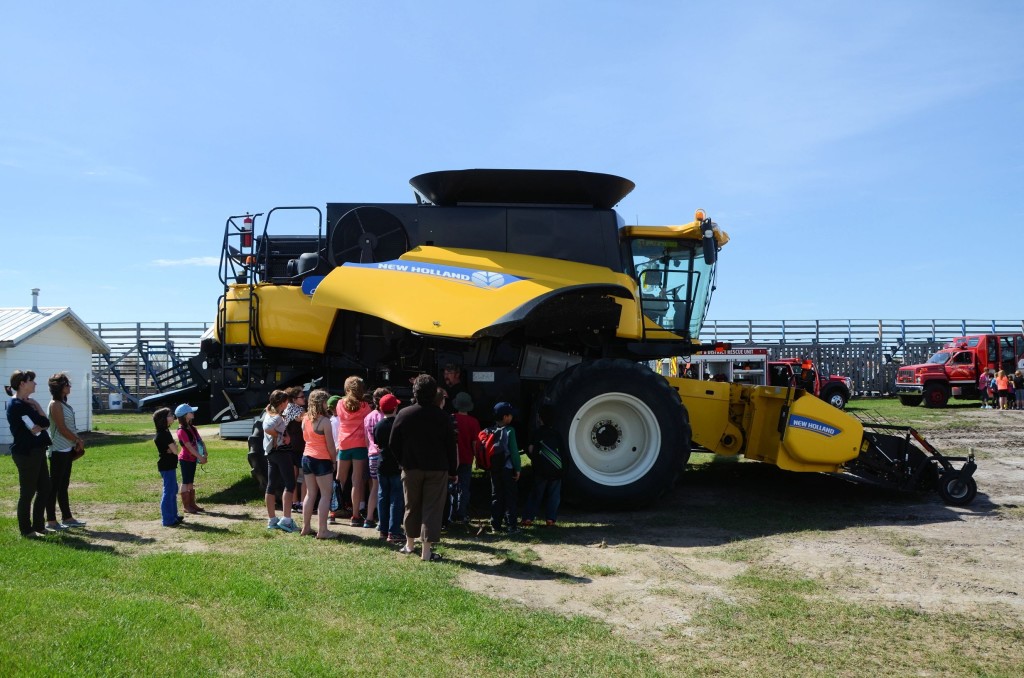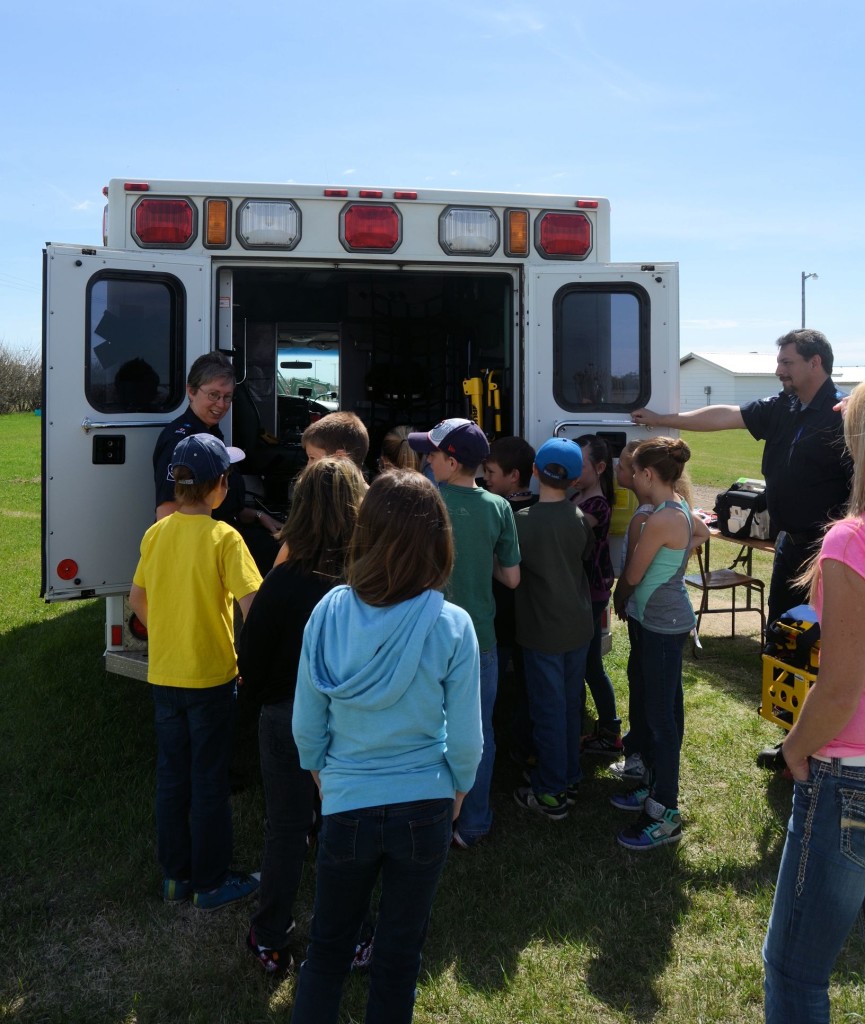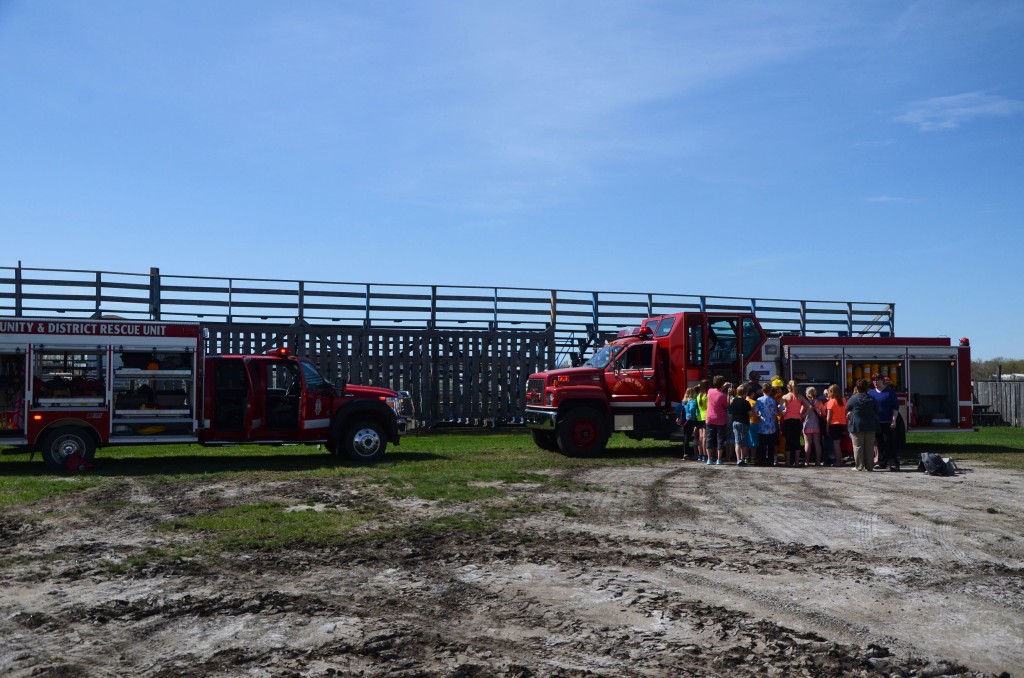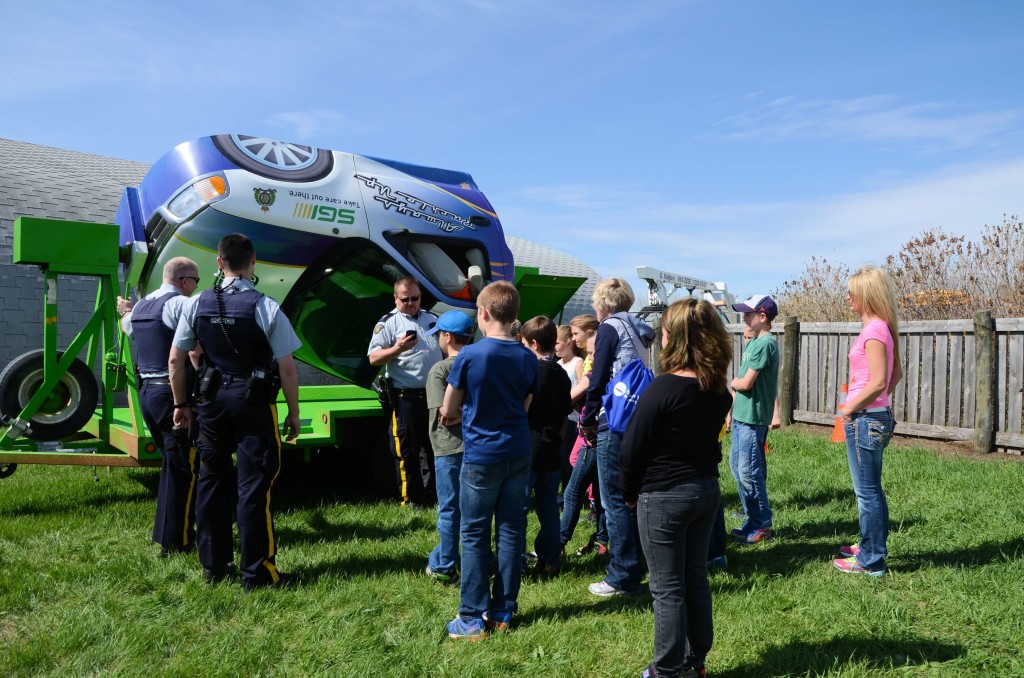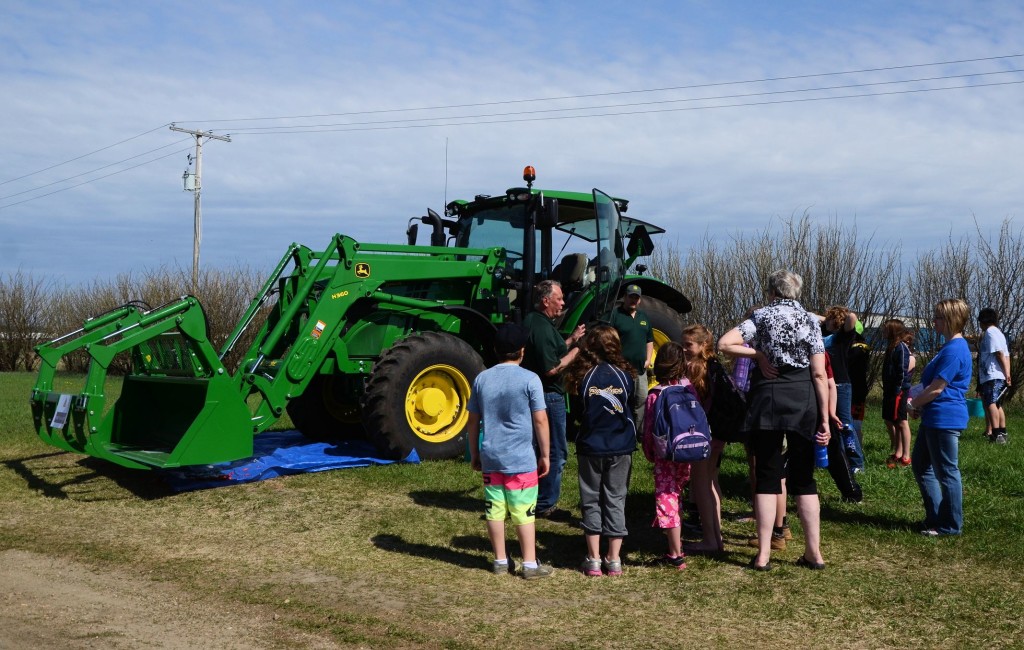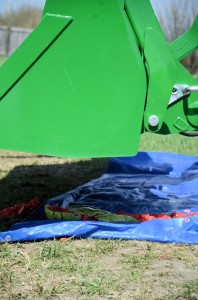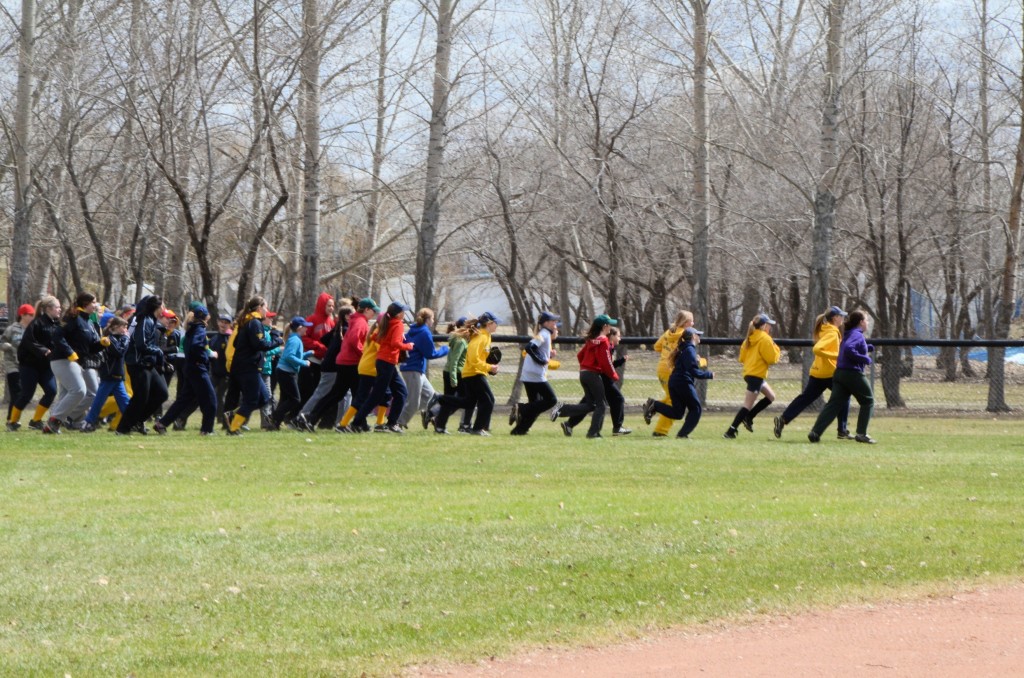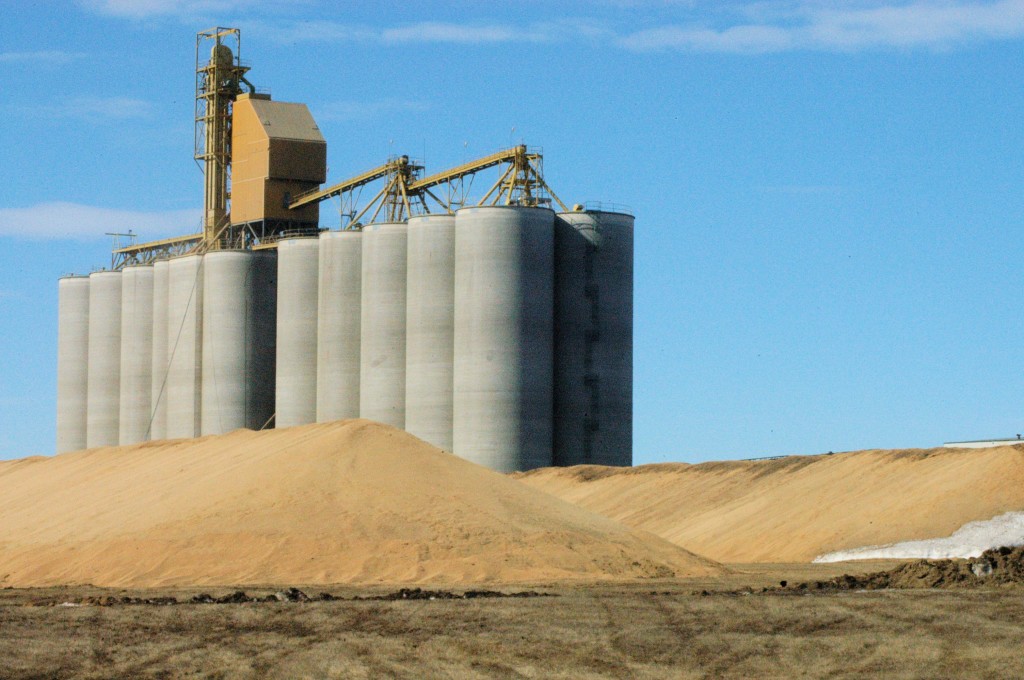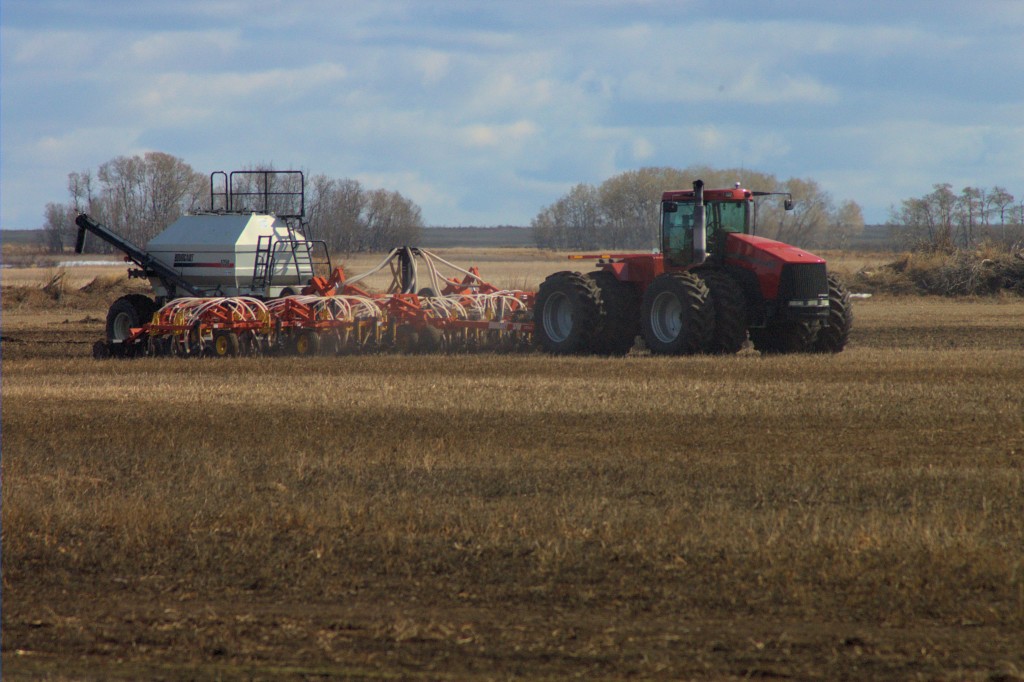With our area escaping the rain experienced during the September 24 to 30 period covered by the latest Crop Report from Saskatchewan Agriculture, we continued to be ahead of the rest of the province in harvest progress.
West-Central Saskatchewan (Crop Districts 6B – Hanley, Outlook, Loreburn, Saskatoon and Arelee areas; Crop District 7 – Rosetown, Kindersley, Eston, Major, Kerrobert, Macklin, Wilkie and Biggar areas)
The west-central region is the most advanced area of the province, with 95 per cent of the crop combined and four per cent swathed or ready to straight-cut. Crop districts 7A and 7B recorded very little rain and so combines continued to roll in those areas. Rain ranged from nil to 62 mm (Hanley area). Spring wheat combined ranges from 90 to 100 per cent; oats 50 to 100 per cent; barley 40 100 per cent; canola 80 to 100 per cent and flax 10 to 100 per cent combined. Flax and canaryseed crops are being combined. Many farmers have completed harvest and others hope to finish within the week.
With some areas receiving very little rain, topsoil moisture conditions continue to deteriorate and are rated as 16 per cent adequate, 37 per cent short and 47 per cent very short on cropland. Hay land and pasture topsoil moisture conditions are rated as 22 per cent adequate, 30 per cent short and 48 per cent very short. Many areas in the region have not received a significant rainfall in over a month. Crop districts 7A and 7B are reporting over 40 per cent of the cropland, hay land and pasture is very short of topsoil moisture. Crop and combine fires have been reported in many areas.
Pasture conditions are rated as three per cent excellent, 13 per cent good, 43 per cent fair, 28 per cent poor and 13 per cent very poor.
The majority of the crop damage was caused by strong winds (of up to 80 km per /hour) that damaged some swathed crops. Producers are busy finishing harvest, working fields and starting fall weed control.
Provincially
Seventy-nine per cent of the 2013 crop is now combined, according to Saskatchewan Agriculture’s weekly Crop Report. Significant rainfall recorded last week slowed harvest progress in most areas of the province. Fifteen per cent is swathed or is ready to straight-cut. The five-year average (2008-2012) for this time of year is 74 per cent combined and 18 per cent swathed or ready to straight-cut.
Harvest progress is most advanced in the west-central region, where 95 per cent of the crop is combined. Seventy-two per cent is combined in the southeast; 85 per cent in the southwest; 68 per cent in the east-central region; 74 per cent in the northeast and 88 per cent in the northwest.
Rainfall throughout the province ranged from nil to 81 mm. Many areas received over 35 mm of rain, and heavy precipitation was reported in the southwestern, east-central and northeastern regions. Many areas in the southwestern, southeastern and east-central regions have been experiencing rain delays for a couple of weeks.
Across the province, topsoil moisture on cropland is rated as five per cent surplus, 65 per cent adequate, 19 per cent short and 11 per cent very short. Topsoil moisture on hay and pasture land is rated as two per cent surplus, 63 per cent adequate, 24 per cent short and 11 per cent very short.
Pasture conditions are rated as nine per cent excellent, 43 per cent good, 29 per cent fair, 16 per cent poor and three per cent very poor.
Rain and strong winds caused the majority of the crop damage. The rain has resulted in bleaching and sprouting of some cereal crops. Wind has caused some shattering losses in swathed canola and ripe crops.
Farmers are busy combining, hauling bales and completing fall weed control operations.
 Enjoy the following photos and please see the June 2nd issue of the Unity Wilkie Press-Herald for additional details of the event.
Enjoy the following photos and please see the June 2nd issue of the Unity Wilkie Press-Herald for additional details of the event.
